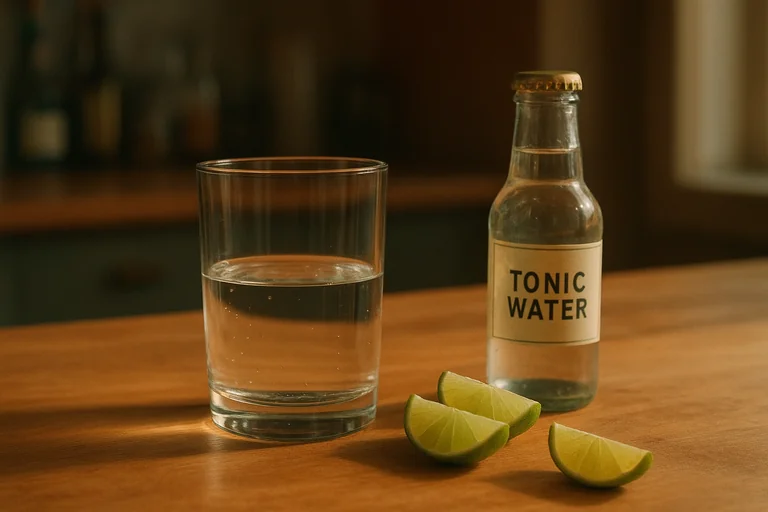A 2 minute assessment to get a personalized mental health or alcohol recovery plan.
Think you have to quit drinking forever to fix your alcohol problem? Research shows some people can successfully learn to drink within safe limits - but there's a catch.
What You'll Discover:
- Why moderation management works for some problem drinkers but not others.
- The specific criteria that determine if you're a candidate for controlled drinking.
- How medication and behavioral strategies can support moderation goals.
- Warning signs that indicate you need abstinence instead of moderation.
For decades, the conversation around alcohol problems has been dominated by a single message: complete abstinence is the only path to recovery. If you're struggling with drinking, you've likely been told that you must choose between being "in recovery" or being "in denial"—with no middle ground allowed.
Or at least, that's what the traditional treatment industry wants you to believe. In actuality, there's a growing body of research showing that some people with drinking problems can successfully moderate their consumption rather than quit entirely. The idea sounds controversial, maybe even dangerous. After all, isn't telling problem drinkers they can still drink just enabling their addiction? But in actuality, more recent studies into controlled drinking have shown that for certain individuals, moderation works better than forced abstinence.
It may be time to reconsider the all-or-nothing approach to alcohol problems if finding a sustainable solution that actually fits your life is a priority.
What Moderation Management Really Means and Who It's Actually For
Don't let anyone tell you that moderation management is just an excuse to keep drinking. The existence of successful controlled drinking programs is real, but they're highly structured and only work for specific types of drinkers.
Many researchers, addiction specialists and therapists will tell you that moderation management is a legitimate approach for non-dependent problem drinkers - people who drink too much but haven't developed severe physical or psychological dependence. Research shows that moderation management tends to attract well educated, middle class heavy drinkers who haven't sought treatment before. Even if you've been drinking heavily for years, if you haven't developed physical dependence, moderation might be an option. It's particularly relevant for people who want to address their drinking before it becomes severe. For example, professionals who realize their nightly wine consumption has gotten out of hand but don't have withdrawal symptoms when they skip a day.
Now that you have a better idea that alternatives to abstinence exist, let's delve further into who actually succeeds with moderation and who doesn't, some of which may be very surprising.
The Science Shows Moderation Works - But Only for Certain People
The undeniable truth is that moderation management has been scientifically studied and validated. There's the research showing it works, as well as the clear evidence about who it works for.
Who Succeeds With Controlled Drinking
This is one of the major findings from moderation management research. A randomized controlled trial found significant overall reduction in both groups in alcohol-related problems and consumption. The Moderation Management organization provides structured support for controlled drinking. Studies show successful moderators typically have:
- No physical withdrawal symptoms
- Fewer years of heavy drinking
- No family history of severe alcoholism
- Strong motivation to moderate rather than quit
- Good social support systems
The Critical Difference Between Heavy Drinking and Dependence
Although many people drink heavily, not all develop dependence. The research found that less heavy drinkers had better outcomes with moderation approaches. But here's where it gets complicated - the line between heavy drinking and dependence isn't always clear. Physical dependence indicators include:
- Withdrawal symptoms when not drinking
- Needing alcohol to feel normal
- Drinking to avoid withdrawal
- Tolerance requiring more alcohol
- Unable to stop once started
When Your Brain Chemistry Changes
After years of heavy drinking, your brain adapts to alcohol's presence. That's because alcohol affects neurotransmitter systems that regulate mood and impulse control.
These brain changes mean:
- Moderation becomes biologically harder
- Cravings override rational decisions
- One drink triggers compulsive consumption
- Abstinence may be the only safe option
Worried you've crossed the line from heavy drinking to dependence? The presence of withdrawal symptoms is a major indicator.
The Motivation Factor Nobody Talks About
Many people are surprised to find that motivation type predicts moderation success. It's now believed that people who genuinely prefer moderation to abstinence do better because:
- They're not feeling deprived
- They maintain social connections
- They avoid the "forbidden fruit" effect
- They take ownership of their choice
Why Some People Must Choose Abstinence
Another serious issue with moderation management is that it's dangerous for certain individuals. Even if you desperately want to moderate, abstinence might be necessary if you have:
- History of seizures or DTs
- Liver disease or pancreatitis
- Mental health conditions worsened by alcohol
- Legal or professional consequences from drinking
- Failed previous moderation attempts
The issue of safety is paramount. There are far too many people who've tried moderation when abstinence was medically necessary, but recognizing these red flags can prevent serious consequences.
The Other Undeniable Reality - Moderation Requires More Work Than You Think
The other major misconception about moderation management is that it's the "easier" option compared to abstinence. You may think controlling your drinking sounds simpler than quitting, but moderation actually requires constant vigilance and decision-making.
Not all moderation attempts succeed, but failure often comes from underestimating the work involved. Very few people successfully moderate without structured programs and ongoing support. More often it's a process of setting limits, exceeding them, and eventually recognizing that abstinence might be necessary.
What might be most troubling is that failed moderation attempts can delay getting appropriate help. Other issues like believing you're "not that bad" because you're trying to moderate can prevent recognition of a serious problem.
The Specific Tools and Strategies That Make Moderation Possible
Now with evidence that moderation can work for some people, understanding the actual strategies becomes crucial. But more importantly, these aren't suggestions - they're requirements for successful moderation.
What's most concerning about moderation attempts is how many people try to "wing it" without structure. Setting specific drink limits is essential. Essentially, you need clear, measurable goals like no more than 14 drinks weekly for men or 9 for women. That is why successful programs provide explicit guidelines.
This is obvious when you look at successful moderators, but most people resist the structure. Tracking every drink consumed is non-negotiable. You must monitor not just quantity but also timing, triggers, and consequences. It will feel tedious but it's necessary for success.
The takeaway is that moderation management requires as much structure and commitment as abstinence programs, just applied differently.
The good news is that medication can support moderation goals, making it easier to stick to predetermined limits.
How Medication Changes the Moderation Game Completely
Clearly, willpower alone rarely sustains moderation long-term. But understanding how medication can support controlled drinking opens new possibilities.
In addition to behavioral strategies, medications like naltrexone can reduce alcohol's rewarding effects. Naltrexone blocks opioid receptors that create pleasure from drinking. This means alcohol becomes less appealing and easier to limit.
Let's look at how this works practically. Imagine you typically can't stop at two drinks because alcohol triggers a compulsion for more. With naltrexone, that compulsion weakens. You can have one or two drinks and genuinely not want more. The medication doesn't make you sick if you drink - it just removes the excessive reward.
Another key consideration is that medication addresses the biological component of drinking problems. While behavioral strategies help with habits and triggers, medication tackles the brain chemistry that drives excessive consumption.
NEED TO KNOW: Naltrexone for moderation works best when taken consistently, not just when you plan to drink. This maintains steady levels that continuously dampen alcohol's rewarding effects.
Building a Moderation Plan That Actually Works
If you're considering moderation management, creating a comprehensive plan is essential for success. This isn't about vague intentions to "drink less" - it's about specific, measurable strategies.
Start with clear consumption limits based on health guidelines. Write down exactly how many drinks you'll allow per day and per week. Most successful moderators set limits below recommended maximums to build in a safety buffer.
Identify your high-risk situations and create specific strategies for each. If work stress triggers excessive drinking, plan alternative stress management. If certain friends encourage heavy drinking, suggest different activities or set boundaries about your consumption.
Build in accountability measures from the beginning. This might include weekly check-ins with a counselor, using a drinking diary app, or joining a moderation management support group. External accountability dramatically improves success rates.
Plan for setbacks without abandoning the entire effort. If you exceed your limits, analyze what happened without judgment. Was it a specific trigger? Did you skip your medication? Use setbacks as learning opportunities to refine your approach.
But here's what's critical to understand: if you repeatedly exceed limits despite genuine effort, it's time to consider abstinence. Continuing to attempt moderation when it's clearly not working can be dangerous.
Recognizing When Moderation Isn't Working and What to Do Next
The hardest part of moderation management is admitting when it's not working. If you find yourself constantly making exceptions to your rules, if drinking continues causing problems despite your limits, or if you're spending enormous mental energy managing your consumption, abstinence might be necessary.
Several clear signs indicate moderation isn't appropriate for you. Consistently exceeding predetermined limits despite genuine efforts shows lack of control. Experiencing withdrawal symptoms, even mild ones, indicates physical dependence. Continuing to have alcohol-related problems - relationship issues, work problems, health concerns - means any drinking is too much.
The transition from moderation attempts to abstinence doesn't mean failure. Many people need to try moderation before accepting that abstinence is necessary. This process of discovery can actually strengthen commitment to sobriety.
If moderation isn't working, professional help becomes crucial. This might mean medical detox for physical dependence, therapy for underlying issues, or structured treatment programs. The key is acting quickly rather than prolonging unsuccessful moderation attempts.
Understanding the difference between problem drinking and addiction can help clarify whether moderation or abstinence is appropriate for your situation.
Ready to explore whether moderation management could work for you?
If you're questioning your relationship with alcohol, if you want to reduce consumption without complete abstinence, or if you're curious whether medication could support moderation goals, professional assessment is the first step. Choose Your Horizon offers 100% online, confidential access to Naltrexone and other treatments that can support both moderation and abstinence goals.
Interested in understanding whether you're a candidate for controlled drinking? Take the online Alcohol Use Assessment to evaluate your drinking patterns and explore evidence-based options for taking control of your relationship with alcohol.




